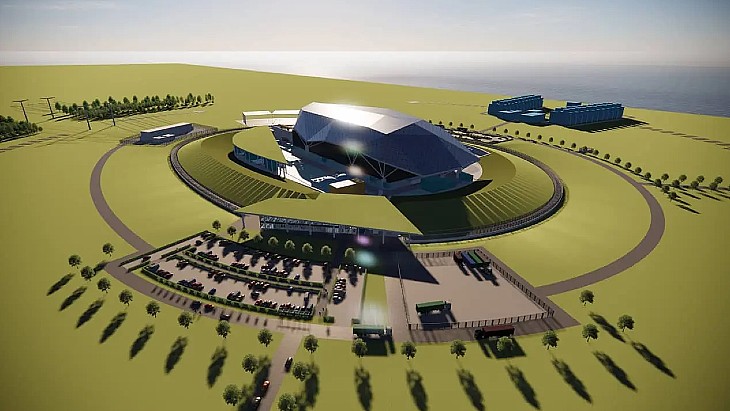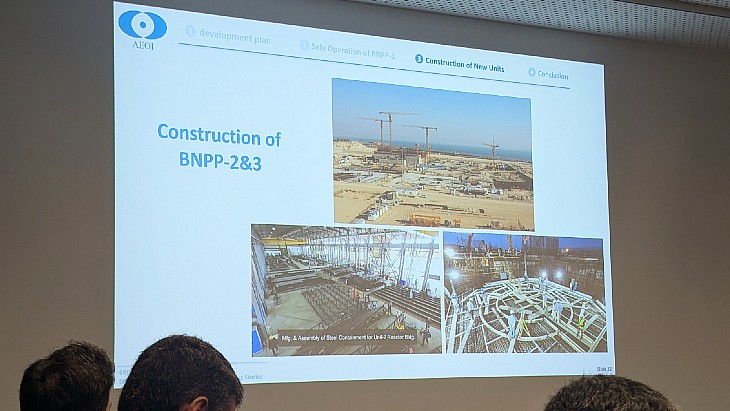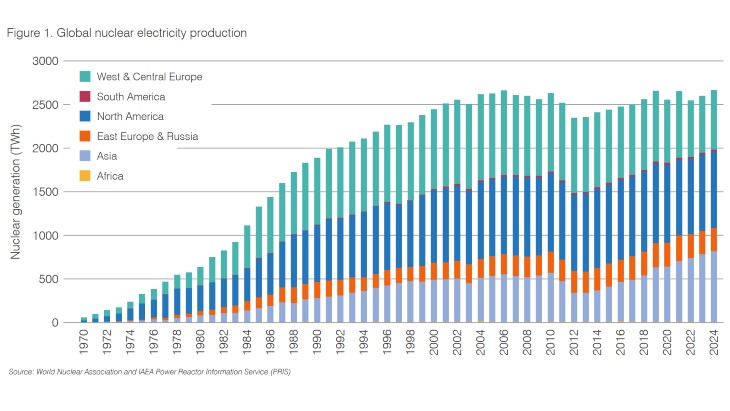The European Commission announced today that it has opened an in-depth state aid investigation into Hungary's plans to provide financing for the construction of two new nuclear power reactors in Paks. The Commission also said that last week it had decided to launch an infringement procedure against Hungary as regards the Paks II project, because it "has concerns regarding the compatibility of the project" with EU public procurement rules.
An inter-governmental agreement signed in early 2014 would see Russian enterprises and their international sub-contractors supply two VVER-1200 reactors at Paks, as well as a loan of up to €10 billion ($10.5 billion) to finance 80% of the project. Paks currently comprises four Russian-supplied VVER-440 pressurized water reactors, which started up between 1982 and 1987. Though originally 440 MWe gross, the units have been upgraded to give 500-510 MWe gross.
Under the EU Treaty Member States are free to determine their energy mix. The Commission's role is to ensure that when public funds are used to support companies, this is done in line with EU state aid rules, which aim to preserve competition in the Single Market. In May 2015, the Hungarian authorities notified the Commission of plans to invest in the construction of two nuclear reactors at the Paks site.
According to today's statement, the Commission will in particular assess whether a private investor would have financed the project on similar terms or whether Hungary's investment constitutes state aid. If the project is found to involve state aid, the Commission will investigate whether, as planned, it would lead to distortions of competition in particular on the Hungarian energy market.
Margrethe Vestager, Commissioner in charge of competition policy, said: "Given the size and importance of the Paks project, the Commission has to carefully assess whether Hungary's investment is indeed on market terms or whether it involves state aid. This requires a complex analysis. I think it is important that stakeholders can also submit their views."
The statement added that, "at this stage", the Commission has concerns this investment may not be on market terms, as Hungary argues.
The Commission will therefore assess in-depth the business case for the construction, operation and decommissioning of the two reactors on the basis of the agreed transaction terms and in view of the EU's energy market projections. If its assessment shows that state aid is involved, the Commission would in particular have to make sure that the project does not lead to distortions of competition on the Hungarian energy market or other undue distortions in the Single Market.
To be found compatible with EU rules, an aid measure also needs to be proportionate to the objectives pursued and address a genuine market failure, meaning that the project could not be realised by market forces alone, without state support. Finally, the investment by Hungary must be "adequately remunerated", according to the statement.
The opening of an in-depth inquiry gives interested third parties an opportunity to comment on the measure, but it does not prejudge the outcome of the investigation.
A Hungarian official said last week that the government still expects to start construction of the Paks II nuclear power plant in 2018 though it has yet to receive confirmation from the Commission that the project meets the bloc's procurement rules. Attila Aszódi, the government commissioner responsible for Paks II, told reporters in Budapest on 17 November that a site licence is expected to be issued in 2016, with a construction permit to follow in 2017.
Also on 17 November, the Hungarian prime minister's office said that, throughout preparations for the Paks II project, the government had "respected all relevant and existing national, EU and international law[s]".
Regarding procurement rules, the Commission said today that the Hungarian authorities have two months to respond to the arguments put forward by the Commission.
According to Reuters, Hungarian Prime Minister Viktor Orban told state radio on 20 November that the project would go ahead despite the Commission's legal action.
"It is Hungary's basic interest to operate, sustain and potentially expand the nuclear power plant, or else the price of electricity will skyrocket. Paks equals cheap electricity, so the Hungarian government will execute the investment," Orban reportedly said.
Researched and written
by World Nuclear News




_92619.jpg)


_84504.jpg)




